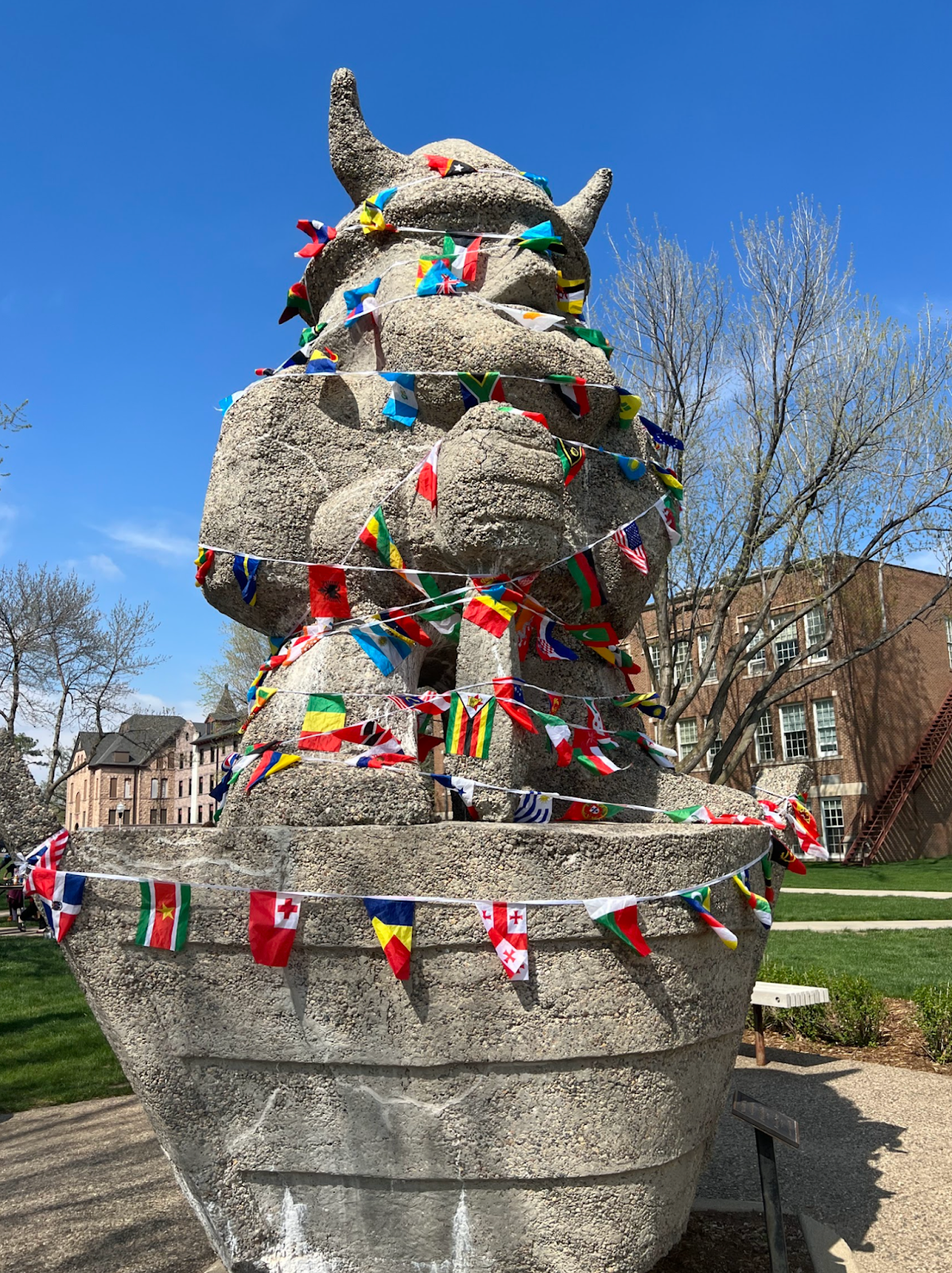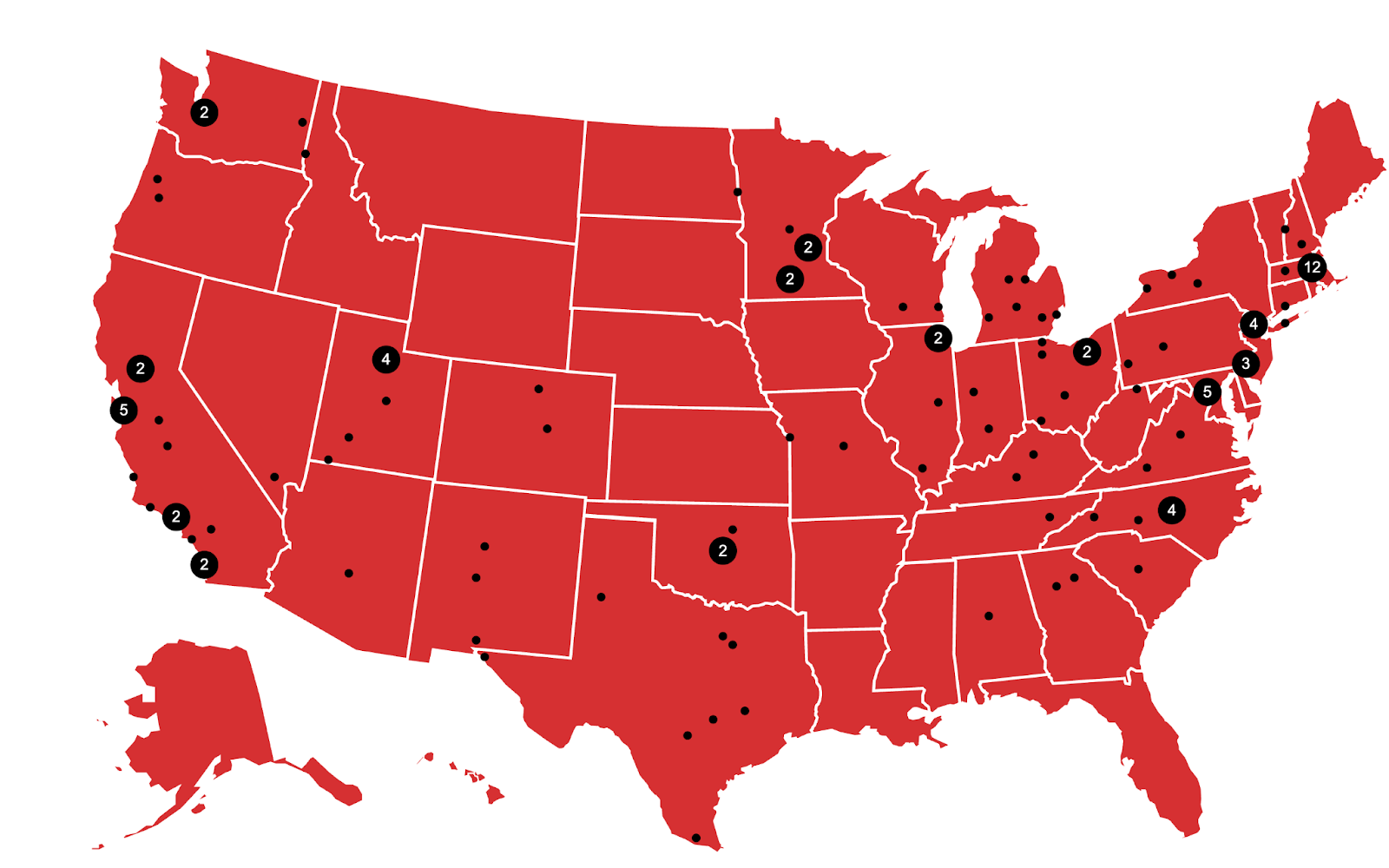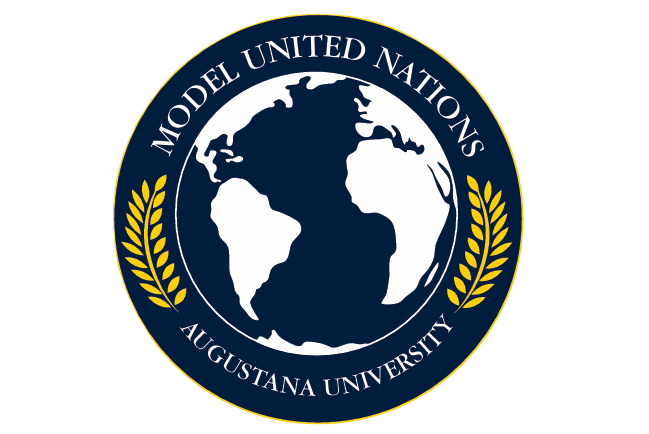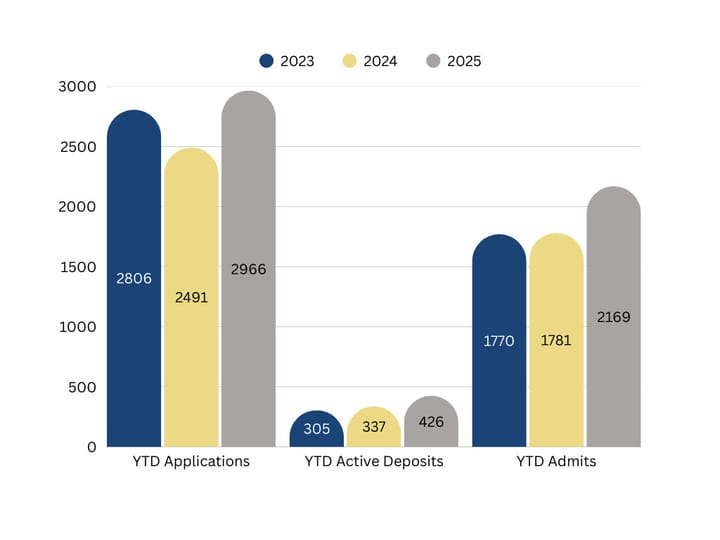International Programs Office responds to nationwide student visa revocations

When one senior international student decided to attend Augustana, they were hopeful and excited to see what opportunities the United States and its democratic republic could provide. Little did they know that feelings of unease and worry would begin to set in come late January of their senior year.
Across the nation, international students studying on F-1, M-1 and J-1 Visas have become increasingly concerned that the federal government will not allow them to stay as long as they’d hoped.
Following President Trump’s Jan. 30 Executive Order, which seeks to “combat the explosion of anti-Semitism on our campuses and streets,” Immigration and Customs Enforcement (ICE) agents detained and arrested international students across the country, including Turkish graduate student Doğukan Günaydin at the University of Minnesota Twin Cities and six Minnesota State University, Mankato students. As of April 6, around 300 student visas have been revoked nationwide since Jan. 30.
The federal government has revoked visas from international students who break the terms of their visa, which could include having previous arrests on record, not remaining in full-time status or not having proper documentation for off-campus work. Students have also been detained for participating in pro-Palestinian activism, which is not a federal offense.

For more information on federal immigration enforcement on campuses, refer to the Presidents’ Alliance on Higher Education and Immigration’s website.
The senior international student (who requested to remain anonymous) keeps up with the news and has noticed that things have taken a turn since President Trump’s inauguration on Jan. 20. Through these news outlets, the student learned about Tufts University student Rümeysa Öztürk, who was detained in Somerville, Massachusetts, after she wrote a pro-Palestinian op-ed piece in The Tufts Daily.
“She didn't do anything illegal,” the student said. “She was doing her Ph.D., you know, just used her [right to] free speech [to say] what she thinks.”
The senior student said they believe some Augustana international students don’t realize how much of a threat to their education the executive order could be. They’ve tried to talk to freshmen international students to help them understand what is at stake, but they don’t seem to get it, they said.
“I’m like, ‘We’re not living in a fairytale,’” the student said. “Like, this is actually bad.”
Despite being a private university, Augustana contains public spaces where ICE agents do not need a warrant to search or seize according to the Fourth Amendment.
Rick Tupper, associate vice president of campus safety and logistics, said that if Augustana community members see any kind of law enforcement or federal agent on campus, they should call Campus Safety immediately.
“We just like to know when they're on campus that we can assist them to figure out where they need to go, what they're looking for, if there's things that we can help provide them,” Tupper said. “Otherwise, just basically so they're not just roaming campus.”
Last Wednesday, April 2, Co-Director of International Programs Heather Edmunds Reed sent an email to F-1 sponsored visa-holding students with a link to Augustana’s “Immigration & Visa Guide for Students.” The intention, Reed wrote in the email, was to “provide [F-1 sponsored students] with resources and support to the best of [the university’s] ability.”
The document details international students’ key rights and supportive resources and provides students with information on what to do if immigration officers arrive on campus or ask for records. It also encourages students to monitor recent visa developments and call Campus Safety with any safety concerns.
Edmunds Reed said large uncertainties make it difficult to tell what will happen in the coming weeks, months and years.
“There are a lot of things that have happened in the last two-and-a-half months that I would never have been able to predict,” Edmunds Reed said. “I think that’s part of the challenge. With the current situation, there's just so much that we feel we don't have control over or inability to predict in life. And I think that uncertainty is being leveraged in a strategic way.”
One of these challenges, Edmunds Reed said, is letting students know if they can travel home for the summer. With such little information to go off of, Edmunds Reed thinks it’s better to wait and give advice to students closer to the spring semester’s end.
The senior international student plans to graduate this coming May, and their decision to stay in the U.S. or return to their home country has become increasingly difficult to make with recent changes.
“It is scary,” the student said. “It is stressing me out. It is stressing other international students. I don't even know if it's better that I know more [than other international students] or if it's worse.”
As the media continues to report on international students being detained nationwide, Edmunds Reed figured students would become more worried about their visa statuses; however, she said she isn’t hearing much from the students she’s talked to.
“I've had conversations with multiple students on an individual level, just meeting them for other reasons, and then I check in with them,” Edmunds Reed said. “I think they're honestly handling it in a way that I find to be revealing of their incredible resilience.”
When international students choose to study abroad, they sign on for some level of risk, Edmunds Reed said. Students are away from their family and country for a long time, and anytime a non-American citizen crosses the U.S. border, there is a risk they may not be able to re-enter the country for a variety of reasons; this is something international students know from the beginning.
The troubling part, Edmunds Reed said, is that the federal government has started altering visa rules and regulations.
“It's not new that there's risk,” Edmunds Reed said. “It's new that there is something that might actually change.”
No student, faculty or staff member has reported seeing ICE agents on campus since the executive order, Tupper said.
“It's not happening here right now, but that doesn't mean that you stick your head in the sand and say nothing's gonna happen,” Tupper said.
Edmunds Reed, despite the negativity in the news, remains grateful for Augustana’s continued support of international students during troubled times.
“I am deeply grateful that Augustana is a place that values international students, that values people's ability to make contributions to our community regardless of their visa status or citizenship,” Edmunds Reed said. “Also, as an American, I'm — you know — disappointed and troubled.”



